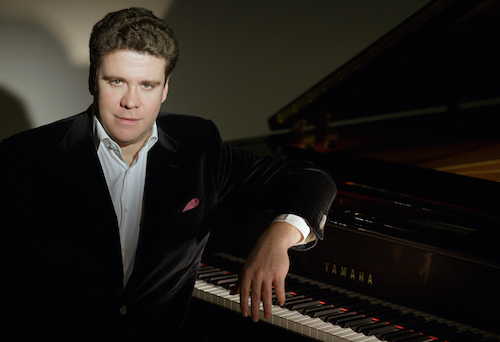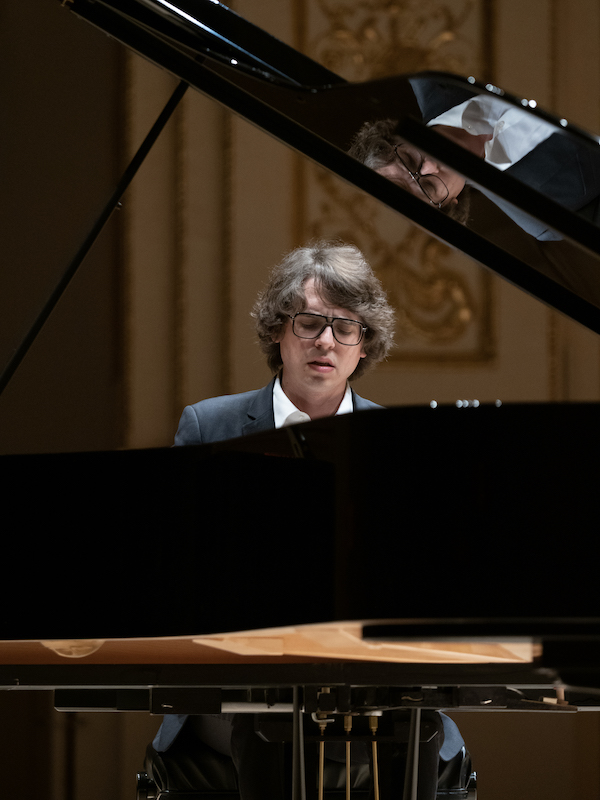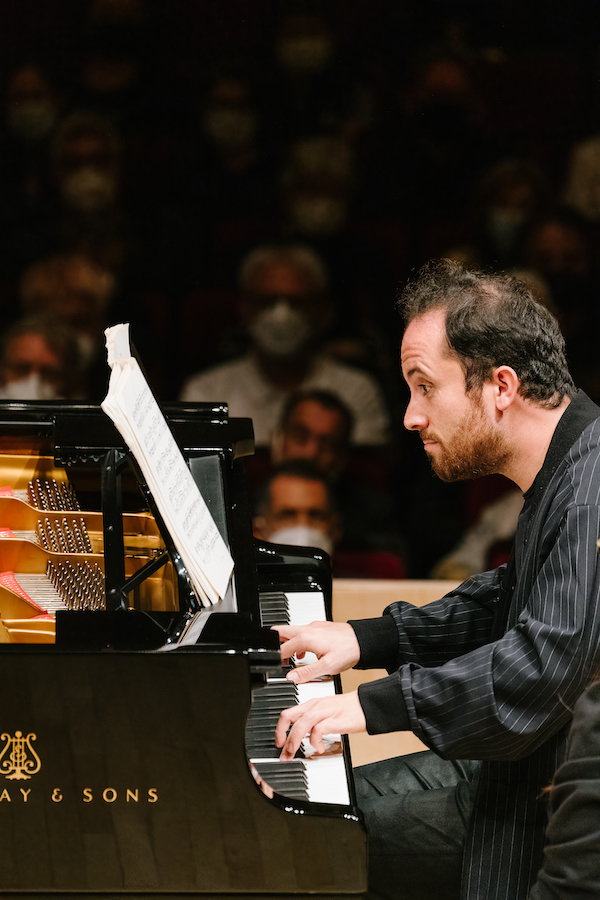Top Ten Performances of 2022
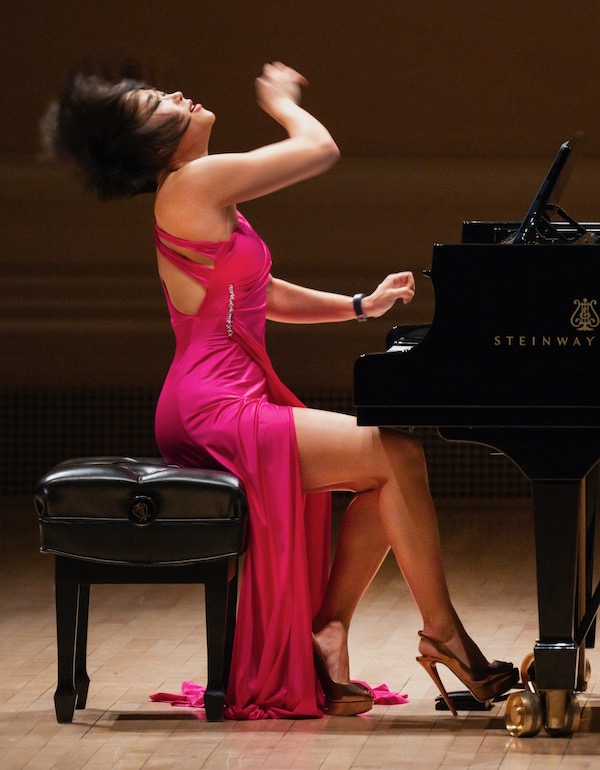
1. Music of Beethoven, Schoenberg, Ligeti, Scriabin, Albéniz and Kapustin. Yuja Wang.
Packing Carnegie Hall without even announcing what she was going to play, the performance phenomenon that is Yuja Wang lit up unexpected corners of piano music in April. Arnold Schoenberg, György Ligeti, and the Ukrainian jazz/classical pianist Nikolai Kapustin are not sure winners with lovers of the piano’s Romantic core repertoire, but when Wang applied her vast resources of technique, imagination and tone color to the moderns, they jumped off the page as well. (DW)
2. Music of Rachmaninoff, Beethoven, and Schumann. Denis Matsuev.
In what could possibly have been Matsuev’s final appearance in front of a New York City audience—and the first in a series of concerts through the season that were connected in one way or another to Russia’s war against Ukraine—the pianist not only exceeded all expectations, but played one of the finest piano recitals of the season. The physical power and technique were there, but his explorations of the inner details of Beethoven and Schumann were wise, sensitive, emotionally complex, and highly personal. His extended encores were full of mysteries one never imagined from this musician. (GG)
3. Joel Thompson: Seven Last Words of the Unarmed. Chelse Tipton II/American Composers Orchestra.
The May concert at Harlem’s fabled Apollo Theater was the product of three years of pandemic-era brainstorming over the question: How could the New York premiere of a little-known choral masterpiece about black people’s deaths in encounters with police seed a program that ultimately celebrated black life?
Billed as a “ring shout”—after the ecstatic, dancing ceremony that had uplifted generations of enslaved people, and their African ancestors before them—the program featured poet Mahogany L. Browne reciting between performances of six more works by black composers, ranging from unaccompanied vocal solo to orchestral showpiece and from gospel fervor to cutting-edge sound design. Thompson’s dark, ruminative cantata could hardly have asked for warmer, more meaningful surroundings. (DW)

4. Music of Michael Gordon and Julia Wolfe. Ensemble Signal.
Greatness can be difficult to appreciate when it’s part of the contemporary scene. But Michael Gordon and Julia Wolfe have been two of the greatest American composers of the past 40 years, and this concert drove it home. Playing established works from each, Ensemble Signal cemented how their music is intrinsic to our times, with its underlying punk attitudes and sense of exuberant agitation, as well as how artful and honest it is, opening up the mind with rhythmic energy and excitement, and then delivering a complex emotional wallop. (GG)
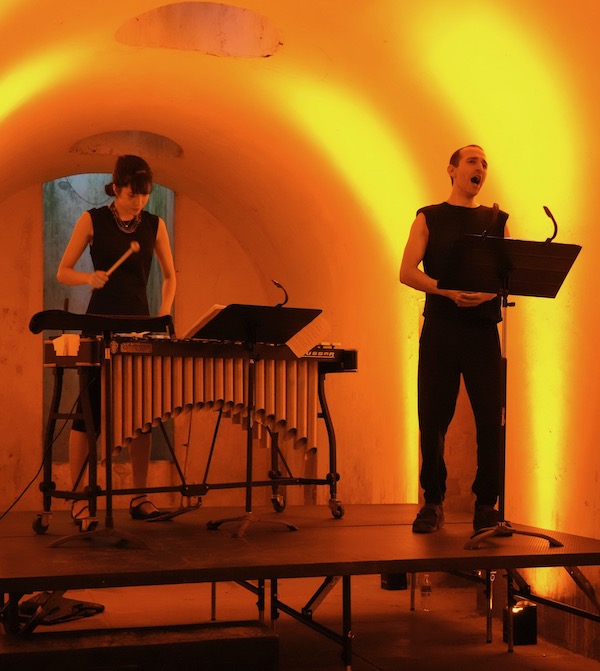
5. Aaron Siegel: Watching Birds at the End of the World. Anthony Roth Costanzo, Sae Hashimoto. The Death of Classical
In the world premiere of this affecting song cycle, countertenor Costanzo and vibraphonist Hashimoto stirred together vocal colors and subtle vibrations in the candlelit Catacombs of Brooklyn’s Green-Wood Cemetery. The texts, by the composer, were taut, often melancholy meditations on life and loss, sometimes solitary, sometimes addressed to a lover. In the end, while the mortuary trappings added their resonance (literal and metaphorical), the triumph of Watching Birds at the End of the World was mostly due to the music and words by the composer/poet and his imaginative performers. It isn’t hard to imagine this work having a powerful effect in any setting, including a traditional concert stage. (DW)
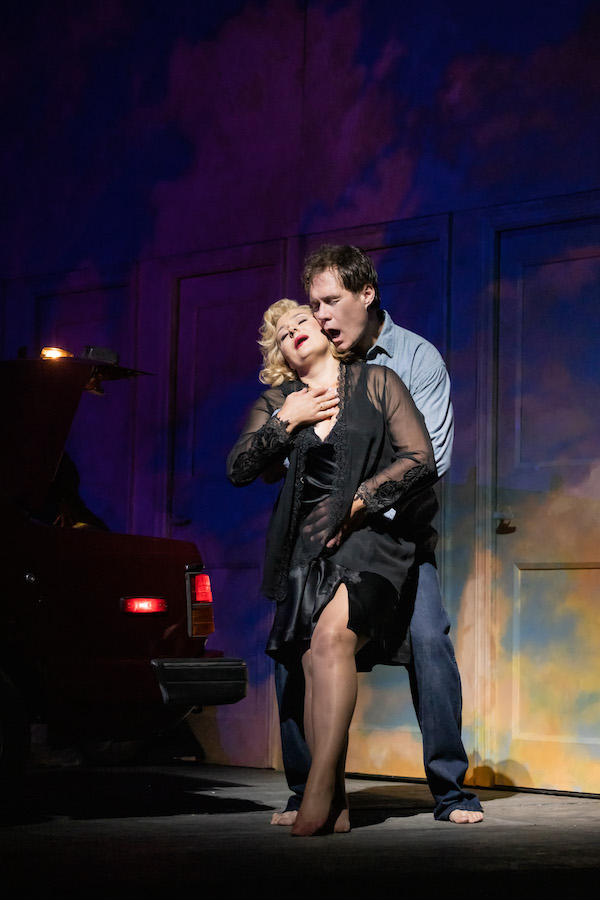
6. Shostakovich: Lady Macbeth of Mtsensk. Metropolitan Opera
Shostakovich is the emblematic composer of the 20th century, finding a way to hold onto personal values while navigating vast, impersonal, and even dangerous political and social movements. His greatest opera is one such work, mocking the structures of society and showing how someone can be both perpetrator and victim. This Graham Vick production is not new, but it’s freshness, brilliance, wicked humor and fearlessness make it feel ripped from the headlines. The Met’s usual strong, deep cast made this a notable run. (GG)
7. Music by Scarlatti, Ravel, Chopin and Liszt. Lucas Debargue.
The young French pianist had won a critics’ award at the Tchaikovsky Competition and made some well-received recordings, but nothing prepared a listener for the stunning mastery and insight of this privately presented November recital in Carnegie Hall. Memories of the young Trifonov sprang to mind as knotty scores from Ravel’s Gaspard de la nuit to Chopin’s Polonaise-Fantaisie yielded their secrets to Debargue’s probing imagination. In Liszt’s “Après une lecture du Dante,” to take just one example, Debargue’s sense of dramatic timing and flow shone everywhere, driving the dire initial summons forward, dragging with the moaning chorus of the damned, sparkling with the vision of the beloved Beatrice, spouting hellfire while laughing at superhuman technical challenges, and keeping musical shape and purpose in mind the entire time. (DW)
8. Shostakovich: Preludes and Fugues. Igor Levit.
The Preludes and Fugues are another masterpiece from Shostakovich, and perhaps the music that most transparently expresses his inner state and thoughts. A full performance is in itself a feat, and this one was Levit at his very best. The pianist traded his own self-examination for a penetrating view into what the composer wrote, and his playing was at times incredible, not only through his dexterity but the unadorned expressive weight. This felt like the last word in this music.
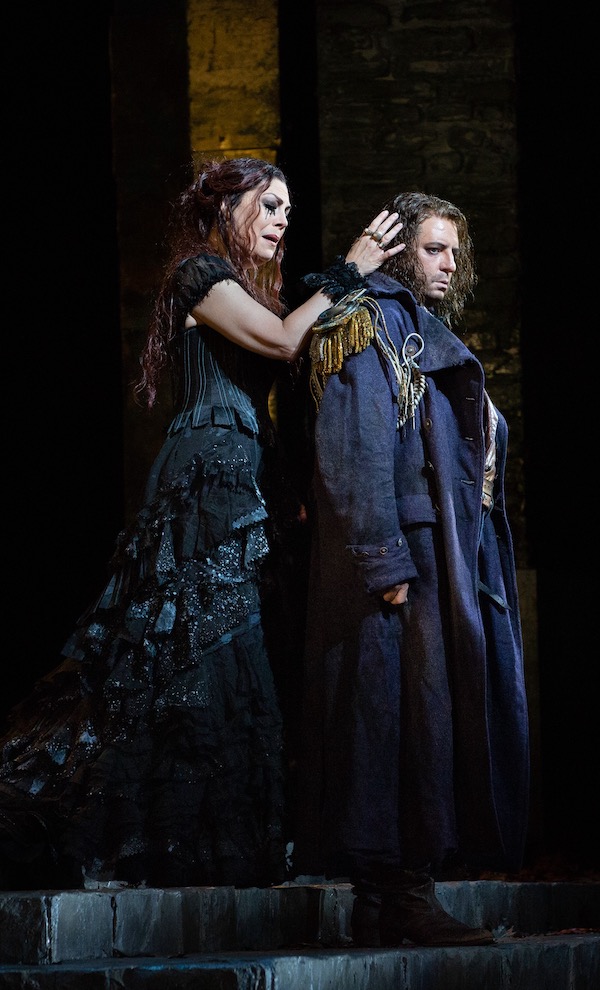
9. Cherubini: Medea. Metropolitan Opera.
Sondra Radvanovsky triumphed as Medea in this unlikely season-opening production. To experience the soprano at the height of her dramatic and vocal powers was reason enough to make this one for the record books, but it was also the first time ever that the Met mounted Cherubini’s opera. General manager Peter Gelb played it safe with entrusting the production to David McVicar, who delivered his customary, audience-pleasing mix of monumental architectural structures and bursts of brilliant color. The cast also featured the fine contributions of Matthew Polenzani, Ekaterina Gubanova, and Janai Brugger, with Carlo Rizzi leading the Met Orchestra in a classical reading of the score. (RP)
10. Music of Valentin Silvestrov. Boris Berman.
Coming at the end of a long, horrendous year for Ukraine was this performance of piano music from the country’s greatest composer. Berman’s program showed how Silvestrov’s language evolved from a kind of rote avant-gardism to a very personal quality of gestural simplicity, harmonic grace, and a gentle but stubborn insistence on expressing itself. The playing had just the right balance between touch and emotion, the former light and the latter nearly unfathomable. Beyond the luminous quality of the music, this was a statement that endurance will win out. (GG)
Honorable Mentions
How could one’s heart not beat a little faster at the thought of Chopin played by Emanuel Ax? The Polish-born American pianist, at 72 in the late stages of a distinguished career, interpreting the visionary last utterances of Poland’s greatest composer in a May recital at Carnegie Hall. The program consisted of eleven of the kind of single-movement character pieces on which Chopin’s reputation largely rests, then closing with the Piano Sonata No. 3. Delivered with unflagging imagination and deep resources of tone and touch, the imaginative program made for a satisfying, often illuminating, recital. For much of the evening, as barcarolle followed mazurka followed nocturne, introspection was the predominant mood, pianissimo the go-to dynamic. But Ax had plenty of power and brilliance in reserve, and when he let it fly in the sonata the effect was exhilarating. (DW)
Perhaps for the specialized opera fan, simply having a production of the full version of Don Carlos at the Metropolitan Opera was notable in itself. Yet David McVicar’s production of this great Verdi opera embodied the monumental forces of church and state at play in the drama, and the cast, with Matthew Polenzani, Sonya Yoncheva, and Eric Owens, was superb. (GG)
There are few singers that can effortlessly fill the Metropolitan Opera and Lise Davidsen is one of them. Her regal Ariadne made the Met’s revival of Elijah Moshinsky’s production of Strauss’s Ariadne auf Naxos one for the memory books. The sight of the three Nymphs floating across the stage remains one of the most beautiful sights ever to appear on the Met’s stage. The Met Orchestra with Marek Janowski was the icing on the cake. (RP)
The intimate, resonance crypt under the Church of the Intercession was the ideal place to hear Philip Glass’s Songs and Poems for solo cello. This music, equally intimate and resonant—was written by Glass for Wendy Sutter before their personal relationship fell apart, and this was the first time the cellist performed it in public. The pieces are beautiful, and Sutter was immersed in the performance, filling the space with the complex mix of the composer-performer relationship. (GG)
The standout piece of Justin Bischof and Modus Operandi Orchestra’s Merkin Hall concert was Shostakovich’s Concerto in C minor for Piano, Trumpet, and String Orchestra. Pianist Alexandre Moutouzkine gave an outstanding performance, playing with brilliance and passion, and trumpeter Eganam Segbefia’s personal style was mirrored in his elegant playing and liquid tone. Bischof led a performance that captured the wit, humor and optimism of the young Shostakovich which would soon be squelched forever by the Soviet apparatchiks. (RP)
Most Seamless Transition
As Louise Basbas, founder and director of the venerable Music Before 1800 early-music series, handed the reins to a new artistic and administrative team in June, the oldie hits just kept coming. The ensemble Blue Heron, a local favorite from Boston, sang Basbas out in May with a superb 600th birthday celebration of the Flemish master Johannes Ockeghem. In October, Boston Camerata launched the new regime with an American program that snuck the clock forward to music before 1900, because that was the U.S.A.’s “early” period; and Belgium’s Vox Luminis drew a Bach family tree in music, culminating of course in the great Johann Sebastian. There were rich, rewarding performances every step of the way. The ancient beat goes on. (DW)
Most Watchable Conductor
Generally, the success of conductors is measured by the sounds that reach the listeners’ ears, not by their choreography on the podium. Once in a while, however, a conductor comes along who, through some alchemy of motion, so visibly shapes the performance that they become a sort of visual correlative to what one is hearing, a guide through the score and all its nuances.
Leading the City of Birmingham Symphony Orchestra (where she is stepping down as music director) in music of Adès, Elgar and Debussy at Carnegie Hall in October, Mirga Gražinytė-Tyla appeared as rooted and centered as a tree in the wind, speaking volumes with her hands and arms. The rich, characterful playing of the musicians was mirrored in her rich vocabulary of gestures, whether sweeping or nearly imperceptible. And that enhanced the experience of the music. (DW)
Most Satisfying Utterly Conventional Program
Evgeny Kissin brings to 21st-century audiences virtuoso pianism of the early 20th-century Russian school, surviving somehow in the playing of this pianist born in 1971. And like his illustrious predecessors, he has been known to over-Romanticize the Baroque and Classical items that were once required to “balance” a recital program. His May recital in Carnegie Hall did indeed start with Bach, Mozart, and Beethoven, but in this case he played each of these with insight and style, putting his vast resources of tone and touch at the disposal of their unique idioms. Then, lest anyone worry that Elvis had left the building, Kissin delivered Chopin’s Andante spianato and Grande polonaise brillante with all the Romantic lyricism and keyboard pyrotechnics anyone could desire. (DW)
